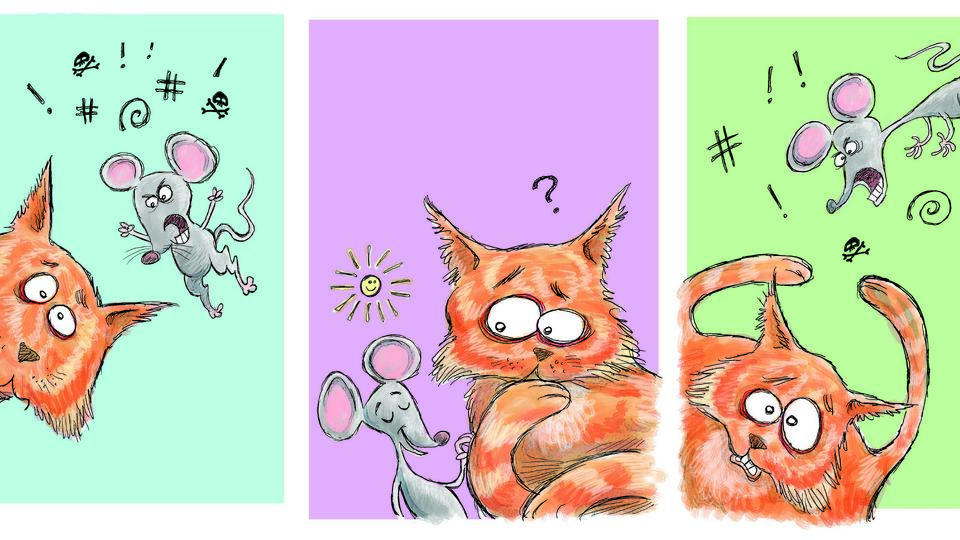
Waving A Red Flag
Depending On Your Background, It Can Help To Get Angry
Based on research Hajo Adam (former Rice Business professor) and Aiwa Shirako
Depending On Your Background, It Can Help To Get Angry
- A negotiator’s cultural background affects the impact of certain emotional displays.
- Perceived stereotypes inform how negotiators respond to shows of emotion.
- When a participant shows emotion during negotiation, consider his or her cultural background — and also consider your own.
Want an edge in negotiating? Depending on your background, it can help to get angry.
Even on a good day, cross-cultural communication is tricky. The vagaries of negotiating make it more so. Like most behaviors, negotiators’ actions are heavily influenced by their cultural background. But their counterparts’ reactions to that behavior, research shows, varies strikingly. Depending on which stereotypes are in play, emotions that suggest weakness in one negotiator can work in favor of a negotiator from a different cultural group.
According to Hajo Adam, a former assistant professor at Rice Business, anger is one such emotion. For certain cultures, Adam found, losing one’s cool can score a strategic advantage. In a research collaboration with Aiwa Shirako, a People Analyst at Google, Adam found that when negotiators from East Asia show anger during business talks, Westerners perceive it as toughness. Outbursts that might inspire contempt or distrust from other groups seem to spark respect and a wish to cooperate when they come from East Asians.
The researchers advanced two related hypotheses. First, when East Asian negotiators expressed anger in cross-cultural negotiations, it could prompt cooperation and the sense that they were tougher negotiators than their counterparts from a different background. Second, for this effect to occur, the negotiating counterpart needed to believe a stereotype that East Asians were in general less expressive.
To test these theories, the researchers focused on two cultural groups: East Asians and European Americans. Using subjects from Amazon’s Mechanical Turk website and college campuses, the team set up a series of scenarios that included computer-mediated and face-to-face negotiations.
The first experiment tested if East Asian culture was stereotyped to be less expressive, and European American culture, by comparison, was stereotyped to be more so. Recruiting 70 people raised in the United States, the researchers asked them to answer a questionnaire gauging if people from certain cultural groups were likely to be emotionally expressive and likely to express anger and frustration. The participants, 82 percent of whom had European roots, were asked about East Asians, European Americans, and Hispanics. The results bore out the stereotype that East Asians were less expressive.
In their next four experiments, the researchers used new participant samples to measure how such stereotypes played out in negotiations. In the first experiment, they gathered participants who were from the United States, 79.6 percent of whom had European American roots, to give information about themselves such as name, age, gender, hair color and ethnicity. Each participant then received similar information about a supposed negotiating partner. Instructed to take on the role of a project manager looking to hire an IT company, each participant was randomly matched with a partner for a supposed online negotiation. In reality, however, they were negotiating with a “simulated counterpart.” The participants were asked to make an offer and wait for a reaction. After some time, their counterpart would then send an angry note back.
The results: The negotiators faced with angry East Asian counterparts were more likely to cooperate than negotiators faced with angry European American negotiators.
For the second experiment, 120 new participants were recruited in a longer version of the first scenario. Instead of being told they were negotiating with another person, they were told to read the scenario and imagine how they would react. As in the first study, participants received background information about their counterpart. They were then connected by phone with an angry-sounding counterpart.
Once again, the angry East Asian negotiators prompted greater cooperation than the European Americans. Calm East Asian negotiators, meanwhile, got no better cooperation than calm European Americans.
In a third, double-blind experiment, the researchers organized 288 university students into same-sex dyads, assigning each person one of two roles as negotiators on a class project. Based on a payoff table, the students were told to win as many points as possible, with incentive pay for getting a good deal.
An East Asian negotiator who expressed anger elicited significantly more cooperation compared to an angry European American, the study showed. The angry East Asians were also perceived as tougher and more threatening when angry.
Finally, in their final experiment, the researchers asked 110 new participants to complete two separate studies, a stereotype assessment and a negotiation task. This time, the researchers varied the cultural background of the negotiator supposedly expressing anger. Once again, East Asian negotiators who showed ire outperformed angry European American negotiators — but only when the counterpart held the stereotype of East Asians being emotionally unexpressive and European Americans being emotionally expressive.
The practical takeaway? Certain groups indeed can use emotional displays such as anger to advantage. At the same time, earlier research by Adam shows that responses to emotional displays can vary drastically depending on the counterparts’ cultural backgrounds.
To navigate these straits, Adam’s team suggests that negotiators consider not only their own backgrounds — but also those of their counterparts. Without understanding the power of stereotype on both sides, negotiators can end up hoist on their own petard.
Hajo Adam is a former assistant professor of management in the Jones Graduate School of Business at Rice University.
To learn more, please see: Adam, H. & Shirako, A. (2013). Not all anger is created equal: The impact of the expresser's culture on the social effects of anger in negotiations. Journal of Applied Psychology, 98(5), 785-98.
Never Miss A Story


